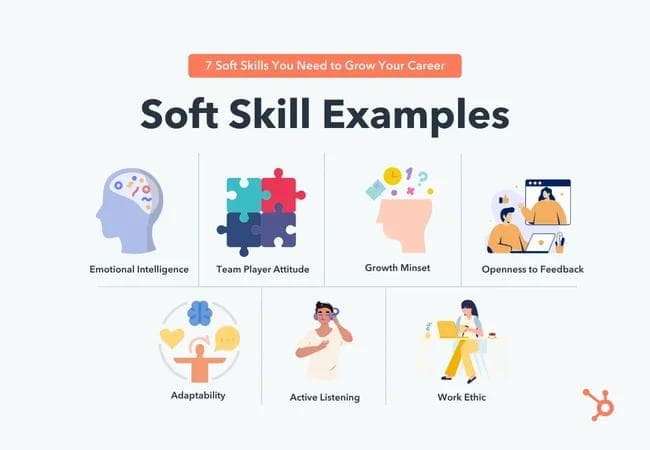
Unlocking Success in the Software Development Talent Race: A Comprehensive Hiring Guide
In the fast-paced realm of technology, the demand for software developers has surged to unprecedented levels, intensifying the competition for top talent. This trend is set to accelerate as companies embrace digital transformation and position themselves for growth. In the United States alone, the workforce comprised 1.63 million software developers and quality assurance (QA) workers in 2022, with projections soaring to two million by 2032.
The US Bureau of Labor Statistics anticipates a 25% growth in demand for software developers over the next decade. However, this surge in demand is met with a critical shortage of qualified developers, making the recruitment process more challenging than ever. In this environment, the importance of finding the right candidate for the job cannot be overstated.
To guide you through the complexities of hiring in the tech industry, we've compiled a step-by-step guide, providing insights and strategies to help you secure the best software developers for your team.
How to Hire the Best Software Developers in 5 Basic Steps
Step 1: Create a Detailed Job Description for In-Demand Software Development Skills
Define your software development needs, outlining specific features, tech stacks, and deployment preferences. Develop a candidate profile detailing the technical skills, knowledge, expertise, and experience required. A comprehensive job description increases the likelihood of attracting the right talent.
Step 2: Review the Portfolio of Potential Candidates for Software Development Expertise
Evaluate resumes, cover letters, and portfolios to shortlist candidates with skills, experience, and contributions aligning with your needs. Consider client reviews and testimonials for insights into a candidate's performance on previous projects.
Step 3: Assess Aptitude for Software Development Excellence
Go beyond traditional recruiting methods by incorporating objective assessments. Utilize proprietary assessments to evaluate candidates for attitude and aptitude, focusing on skills like communication, work ethic, problem-solving, and time management.
Step 3.1: Conduct Interviews to Evaluate Software Development Competencies
Craft impactful interview questions to assess both technical and soft skills. Interviews play a crucial role in determining a candidate's capabilities and proficiency.
Step 3.2: Conduct Practical Assessments for Software Development Skills
Facilitate practical exams to test candidates' skills and knowledge of software development fundamentals. Ensure tasks are reasonable and can be completed within a fair timeframe.
Step 4: Keep Track of the Hiring Process for Software Development Talent
Maintain a comprehensive record of candidates, including roles, job descriptions, screening results, and reasons for hiring or not hiring. Take detailed notes during interviews for easy candidate comparison.
Step 5: Decide, Make an Offer, and Onboard Software Developers for Success
Review candidate qualifications and make an informed decision. Extend an offer, and upon acceptance, provide resources and support for a structured onboarding process, including legal paperwork, effective communication channels, and access to necessary tools and software.
5 Hiring Strategies to Attract Top Software Developers with In-Demand Skills
1. Embrace Remote Hiring and Working from Home for Software Development Teams
Overcome geographical limitations by embracing remote hiring. Use platforms like We Work Remotely, LinkedIn, and ZipRecruiter to tap into a larger pool of talent. Additionally, offering remote work options promotes flexibility and work-life balance, appealing to the growing preference for remote work.
2. Find Talent in Areas with Lots of People but Few Opportunities for Software Developers
Explore emerging markets with large populations and growing IT industries. Consider sourcing talent from countries in Africa, South America, Eastern Europe, and Southeast Asia, where the talent pool is vast and hungry for opportunities.
3. Consider Hires with Different Levels of Experience in Software Development
Look beyond experience and prioritize aptitude and potential. Recognize that software developers can learn specific skills on the job, and skills like leadership and problem-solving are valuable irrespective of experience level.
4. Be Mission-Driven and Consider Cultural Fit in Software Development Teams
Highlight your company's mission to stand out in a competitive market. Emphasize how candidates contribute to the mission and foster a cultural fit. Cultural alignment is crucial for engagement and long-term success.
5. Provide a Competitive Compensation Package for Software Developers
Recognize the value of software developers by offering competitive compensation packages. Beyond monetary benefits, consider flexible working hours, paid leaves, and training opportunities to attract and retain top talent.
In the dynamic landscape of software development, mastering these steps and strategies will empower you to navigate the talent race successfully. By adopting a thoughtful and comprehensive approach to hiring, you position your company for sustained growth and innovation